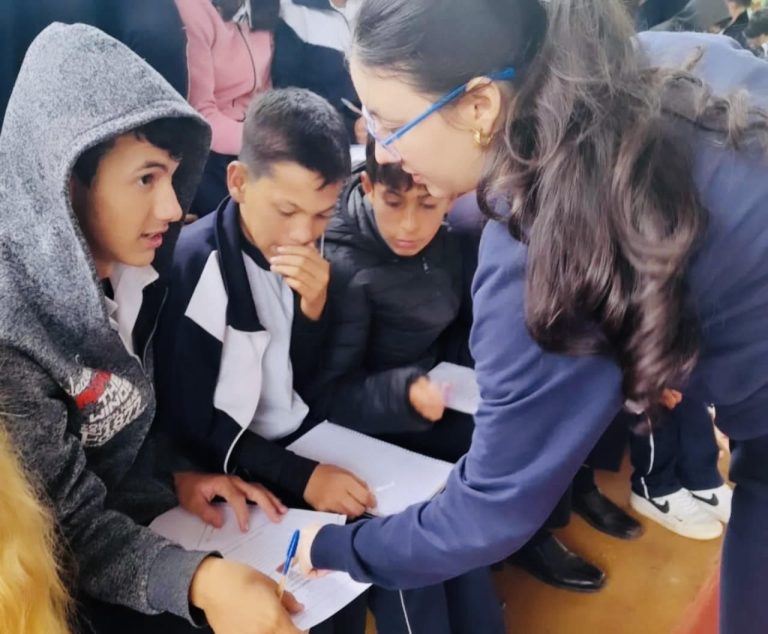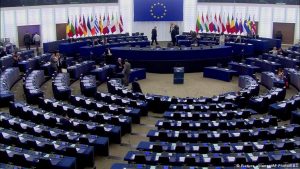For three days, WYA’s Director of Latin America, Maria Laura, and myself, a WYA member from Paraguay, visited several educational institutions in Alto Paraná, Paraguay. We reached over 900 young people as we led workshops on human dignity in multiple schools. Many students shared they had never heard of “human dignity” before. This revelation was both striking and encouraging, as it reminded us of the very real need to talk about human dignity, to make it a part of everyday life, and to discuss it in the classrooms and in relationships with others.
What was first an initial, shy reticence from students soon gave way to deep attention, sincere questions, and personal reflections. Several moments moved me deeply. In one school, when Laura asked who considered themselves valuable, a young girl raised her hand and said she did not, because she was very sensitive and felt different. At that moment, I remembered my own adolescence, when I too felt this way. I told her, from the heart, that sensitivity is not a flaw, but a gift that allows us to connect with others, to create, to feel, and to transform. Recognizing our dignity helps us use our gifts to build something beautiful: art, music, or simply deeper human relationships.
In one activity from the Human Dignity Curriculum, we asked each student to write down something valuable about a classmate on a piece of paper. Seeing each student receive those words of affirmation was profoundly touching. Many students sat quietly smiling at the paper for a long while. In that moment, each student saw themselves and their value through the eyes of others. Many understood their value and meaningful presence in the world for the first time.
One young man, speaking in Guaraní, the indigenous language, said: “Jaiko vyropape ko mundo ári,” which means “the world makes no sense.” Maria Laura responded to his comment, saying that although the world can seem chaotic, our lives do have meaning and that we are to live with the purpose of human excellence, which is to respect the dignity of ourselves and the dignity of every human being. That dialogue touched me deeply, because I too have experienced moments of existential emptiness, but in recognizing my dignity, I came to understand that everything gains meaning once we understand who we are.
Some of the students who had first participated in the HDC during COVID are now teenagers. They told me they still remember the lessons, the activities, and the message we shared. Some said they missed me and hoped I would come back. Hearing that confirmed for me that the message of dignity is not easily forgotten, but it endures and waits for growth.
Paraguay is fertile ground for the mission of WYA, as it is a place where life, family, and the principles that sustain true freedom are valued. However, young people here are like young people everywhere: they are facing an identity crisis, desperately searching for meaning and purpose. That’s why programs like the Human Dignity Curriculum and WYA’s Certified Training Program are urgent and necessary. These programs help young people recognize their value, understand their dignity, and work in excellence toward a hopeful future.
Human dignity is not just a concept, it’s a transformative experience. Each workshop was an opportunity to spark a flame in the hearts of Paraguayan youth, reminding them that each of them has infinite worth, that their lives matter, and that change begins when we recognize this truth. To all WYA members, friends, alumni, or volunteers around the world, I want to say: our work carries immense power. Go to the schools, to the educational centers, to the places where young people are, because that’s where this message is most needed. We never know how many lives we might touch with a simple conversation, a workshop, or even a smile. We can save lives through our work, reminding every young person that their worth does not depend on what they do, but on who they are, innately and intrinsically. Human dignity is the light that can transform a generation, and each one of us has the mission to keep that light burning.




